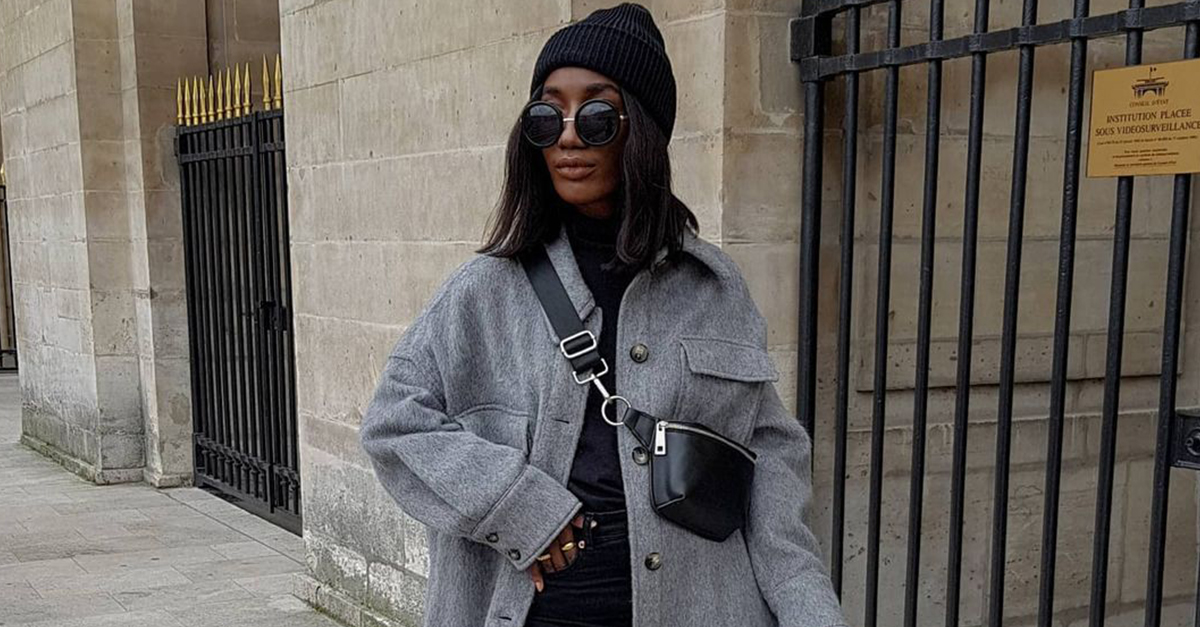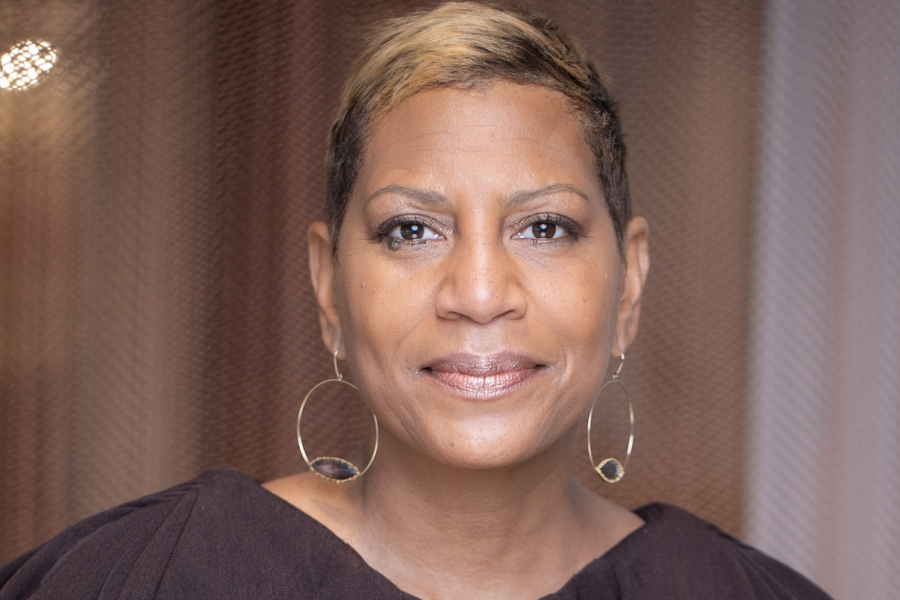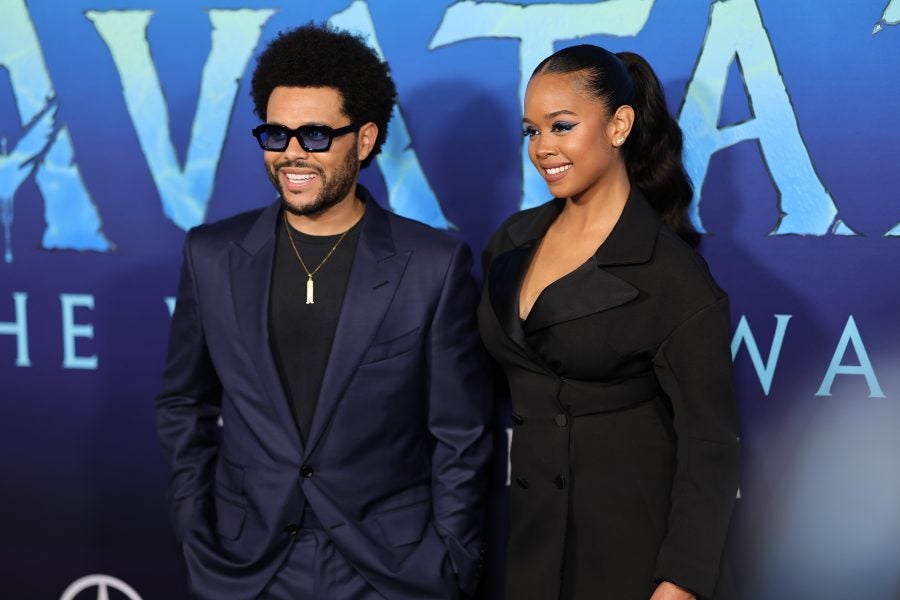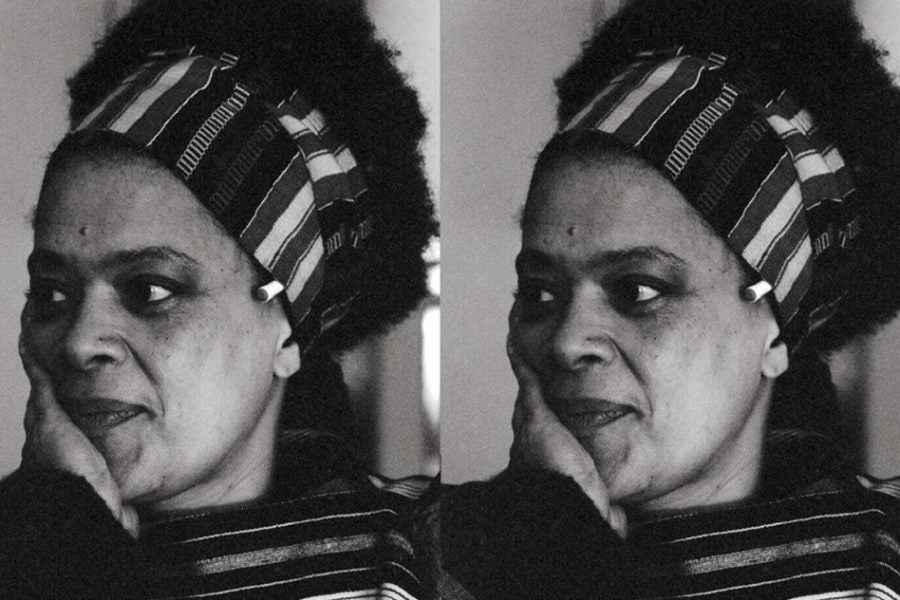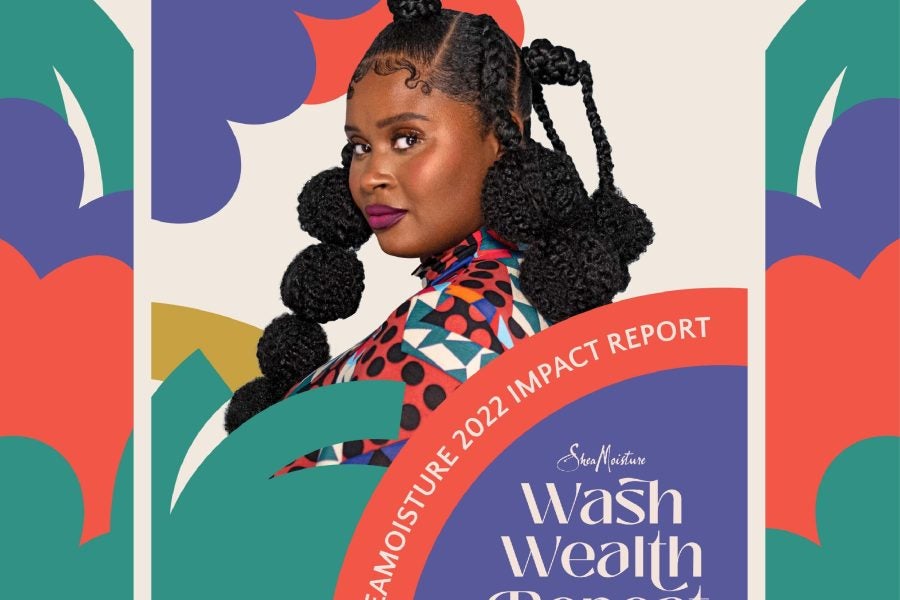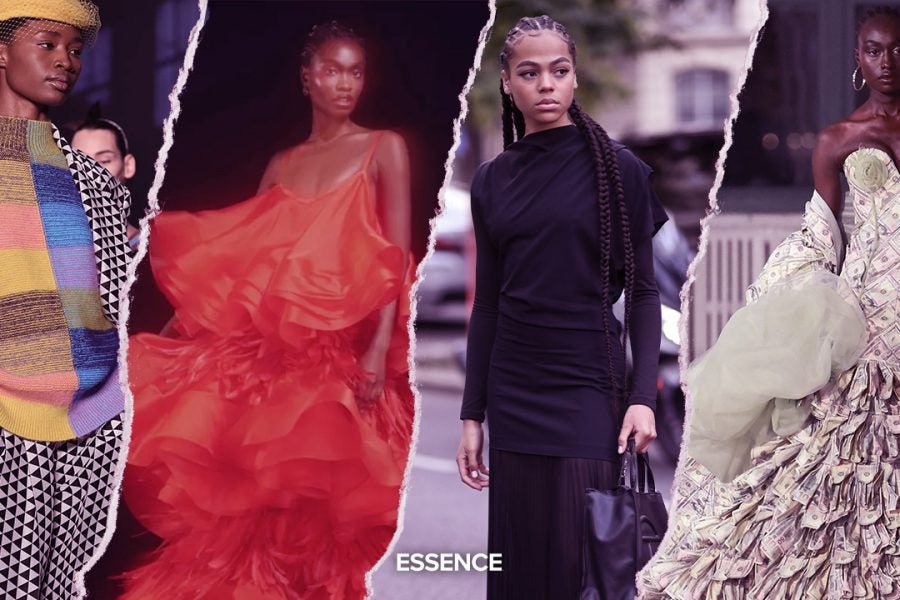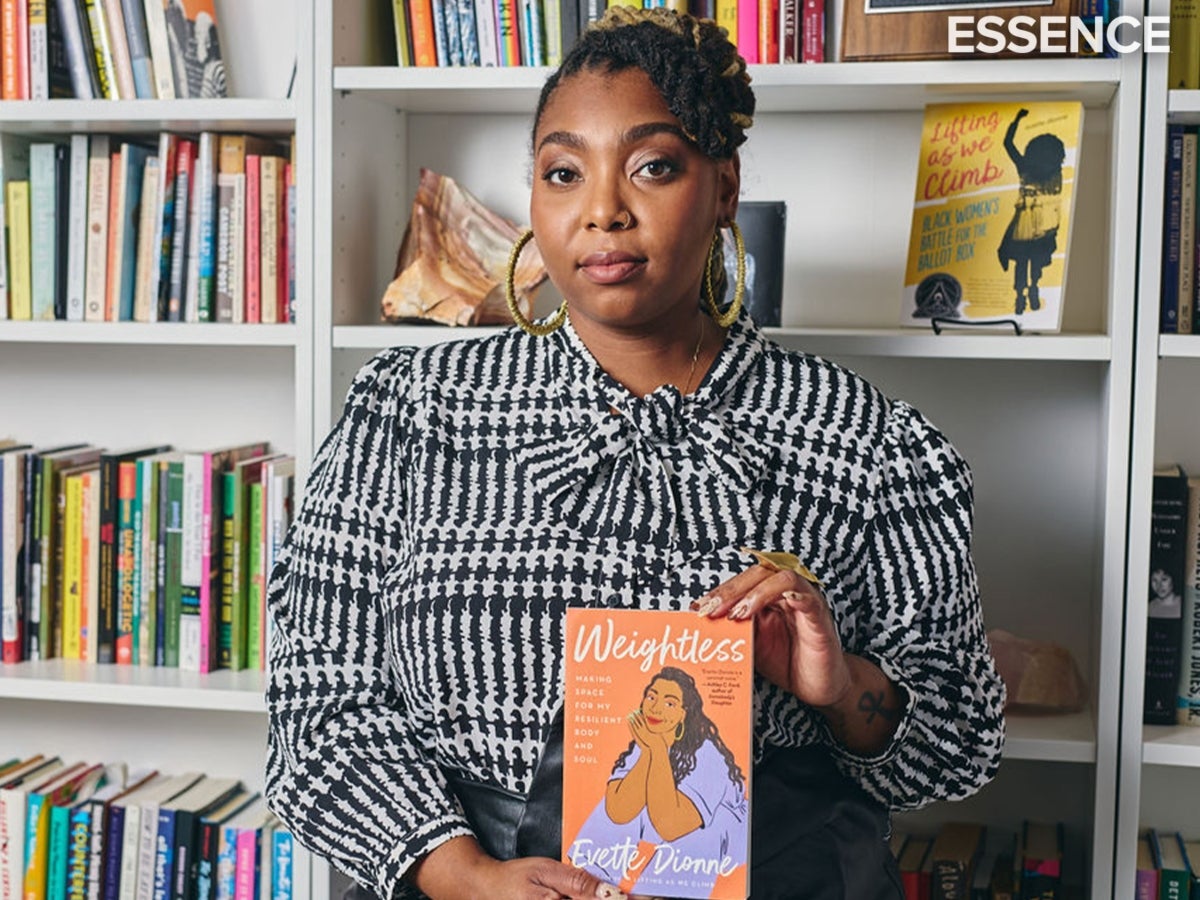
In Weightless: Making Space for My Resilient Body and Soul (Ecco, $26.99), journalist and award-winning author Evette Dionne examines America’s relationship with fatness, deftly exploring how fatphobia—particularly as it pertains to Black women and girls—invades everything from our schools to our health care system. Here, the culture critic known across social media as “free Black girl” shares her vision for a more dignified fat future.
Where did the idea for Weightless come from?
EVETTE DIONNE: Initially, I wanted to chronicle my journey toward fat acceptance in the context of the broader fat-acceptance movement, without focusing explicitly on my relationship to food. Other writers have beautifully written books about unlearning dieting, so I wanted to do something different. Over time, Weightless evolved to be less about myself and more about our broader cultural relationship to fatness and fatphobia.
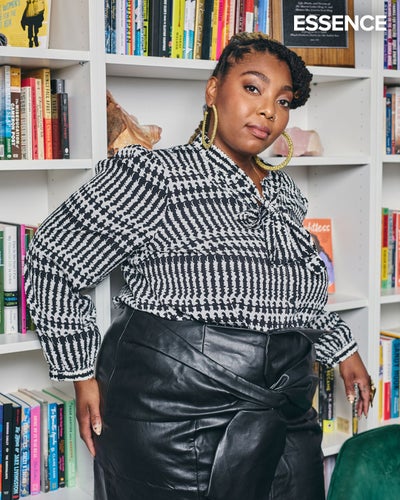
Why was it necessary for you to unpack fatphobia?
DIONNE: It was important to interrogate and challenge our cultural mistreatment and oppression of fat people—especially as my young nieces come into a fuller understanding of their bodies. Fatphobia is such an insidious oppression because it is still acceptable to be fatphobic. If you’re openly and publicly racist, there are usually consequences, such as the wave of Karens losing their jobs. But if you’re openly and publicly fatphobic, there are no real consequences. You can crack fat jokes, snap photos of fat people in the gym and misdiagnose fat patients with impunity, because we treat fatness as a choice with moral implications.
In one of the book’s essays, “I Want a Love Like Kadijah James,” you write about the leading ladies who made you feel seen when you were growing up. Who fills that role these days?
DIONNE: Natasha Rothwell, who played Kelli on Insecure, is an inspiration. She’s not only a brilliant writer and producer, but she refuses to be pigeonholed into two-dimensional “fat roles.” And, of course, Queen Latifah is still reigning—The Equalizer is one of my favorite shows.
If this book had a soundtrack, what would be on it?
DIONNE: “Break My Soul” by Beyoncé, Diana Ross’s cover of “I Will Survive,” “Just Fine” by Mary J. Blige, “On to the Next One” by Jay-Z and Swizz Beatz, and “King Push” by Pusha T.
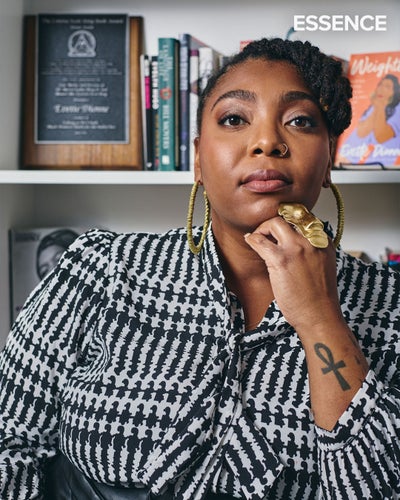
What does the ideal future look like, as it relates to the ways our bodies are regarded and take up space?
DIONNE: Fat people deserve to live in a world that accommodates our bodies rather than deriding us. That could look like passing a federal ban against weight-based discrimination in the workplace; the Federal Aviation Administration requiring airlines to either expand the size of seats or designate a specific percentage of seats for fat passengers; and outlawing weighing children in schools. We should also ban dieting ads from television. There’s so much that could and must be done, but it all boils down to fat people retaining their dignity.
What do you strive for most: body positivity, body acceptance or body neutrality? Why?
DIONNE: I strive most for body acceptance, and more specifically fat acceptance—because that has very little to do with how I feel about my personal body and everything to do with organizing with other fat-acceptance thinkers, writers and activists around crafting a world that no longer treats fatness as deviant.
What do you hope readers will do when they finish Weightless?
DIONNE: I hope they begin interrogating their complicity in fatphobia, especially as it relates to other intersections of oppression. I also hope they divorce themselves from seeking thinness at all costs, and challenge fatphobia whenever and wherever they see it.
Credits
Hair: Jasmine Mills
Makeup: Lily Marsh

